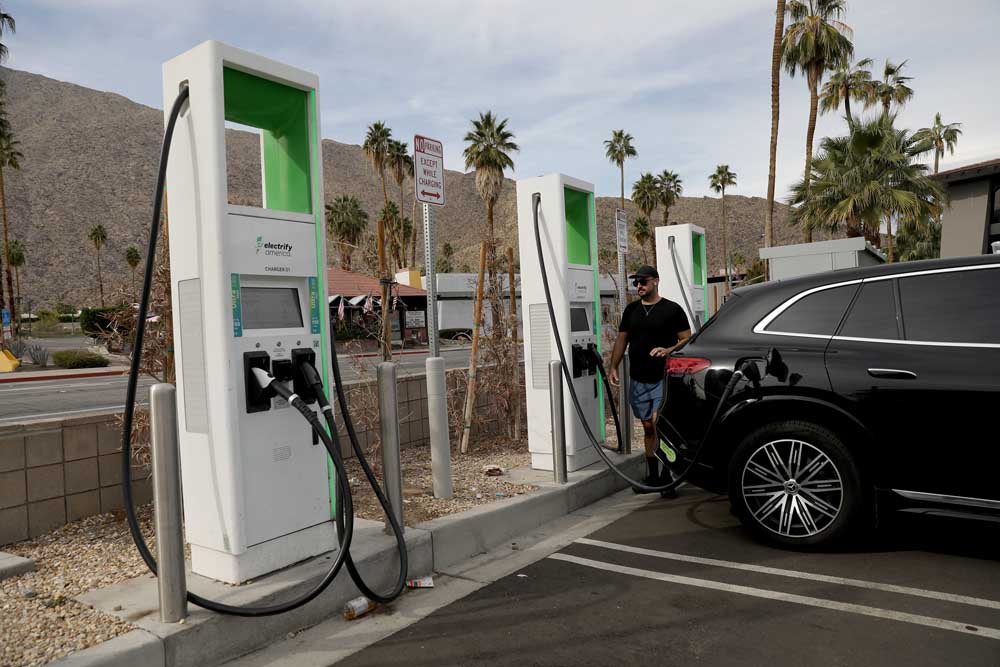Oregon surpasses 100,000 registered electric vehicles, remains one of top EV states
Published 10:46 am Tuesday, November 19, 2024

- The state of California has spent more than a billion dollars on a public charging system that is unreliable, and so instead of encouraging EV ownership, works against it.
Oregon has surpassed 100,000 registered electric vehicles, keeping the state in the top five for EV adoption nationwide.
Generous state rebates and a push to build more charging stations across the state have contributed to the popularity of EVs in Oregon, state environmental officials said recently.
The state actually crossed the green milestone in July but obtaining the DMV registration data takes several months, they said.
As of August, Oregon had about 102,400 registered cars, SUVs and light trucks, according to the state Department of Environmental Quality. That number includes both battery electric vehicles and plug-in gas-electric hybrid vehicles.
Most of the vehicles were registered in Multnomah, Washington and Clackamas counties.
Oregon ranked fifth nationwide last year for the number of registered EVs per capita, following California, Washington, Hawaii and Colorado, according to the U.S. Department of Energy.
Oregon officials said the transition to EVs is key to the state’s effort to reduce greenhouse gas emissions from transportation, which accounts for about 35% of the state’s total greenhouse gas emissions.
The DEQ said the popular Oregon electric vehicle rebate program helped speed up EV adoption and made them available to lower income households.
Over the past six years, DEQ said it has distributed more than 33,000 EV rebates across Oregon, totaling over $99 million. More than a third of the state’s registered EVs have received a rebate and at least $30 million in rebates have gone to low and moderate-income households, the agency said.
But the rebate program has been on hold for more than a year. This summer, the DEQ received an additional $30.5 million from the U.S. Environmental Protection Agency specifically for rebates of $5,000 aimed at low- or moderate-income households, DEQ Director Leah Feldon said. The extra money will go to restart the rebate program next year and will be applied to the new or used electric vehicles bought or leased in 2025.
In addition, the rebate program receives 45% of the vehicle privilege tax — a tax on all new car sales in Oregon — or $12 million annually, whichever is higher and that money will be used to pay those who applied for the rebates in 2024 and were placed on a waiting list.
State officials also said a push to build more charging stations in Oregon contributed to EV adoption. As of this month, the Oregon Departments of Transportation has distributed $4.2 million to nearly 190 charging station projects in 27 Oregon counties, the transportation agency said. Over 75% of those projects are in rural or disadvantaged communities.
It’s unclear if Oregon’s EV adoption will continue at a similarly brisk pace if President-elect Donald Trump decides to kill the federal $7,500 consumer tax credit for electric vehicles when he takes office in January. The tax credit is available in addition to state rebates.








